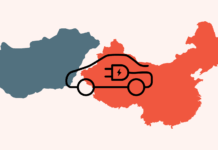Viktor Orban governed Hungary from 1998 to 2002 and again from 2010 to the present. In that time, he has dominated Hungarian politics and, to a great extent, Hungarian life. But late last week, his reign was challenged as tens of thousands of demonstrators gathered in Budapest, calling for his downfall. Demonstrations continued through the weekend. Since Orban assumed the premiership more than a decade ago, the Hungarian opposition has been fractured and generally ineffective. For so many people to rally against his rule after so much time is therefore a stunning event, regardless of whether it leads to his removal.
As the leader of Hungary, Orban created an ideology that has influenced other countries. It has two critical dimensions. The first is opposition to migration into Hungary. A decade ago, millions of people from the Middle East sought refuge in Europe, where many governments allowed them entry even when faced with domestic resistance. Orban’s position ran counter to European liberalism. He argued that Hungary was not just a place but a culture and that waves of immigrants threatened that culture and history. His position won support in Central Europe, where an anti-migration coalition formed in opposition to the prevailing view in Brussels. Over the years, Orban’s view has gained many more adherents throughout Europe.
Second, Orban was hostile to what some now refer to as “woke” culture, particularly its attitude toward homosexuality. His criticisms were partly based on a conservative understanding of Christianity but even more on the belief that homosexuality would corrupt Hungarian society. Again, he was taking a stand against European liberalism, and again his view gained acceptance in other countries over time. In the most recent Dutch election, for example, the party of Geert Wilders, an open and vigorous ally of Orban, unseated the liberal party whose erstwhile leader was one of Orban’s strongest critics.
The influence of Orban’s ideology has also reached the United States. During a March trip to the U.S., Orban had an intensive meeting with Donald Trump. Whether he changed any of Trump’s opinions is uncertain, but they apparently reached a common understanding, and both men have referenced the meeting in speeches.
Returning from that trip, Orban appeared politically secure in Hungary. However, a powerful anti-Orban force was lurking, built on a belief that the Orban regime was corrupt and that various members were enriching themselves at the cost of the people. In a sense, there is now a battle of moral values underway between the woke and the allegedly corrupt – one that may eventually be waged in other countries. But this time, it struck Orban. It is not clear what the uprising will achieve. Outrage about the alleged corruption is widespread, but so is the sense that Orban represents the deep meaning of Hungary.
Another dimension of the Orban drama involves the Ukraine war. Before the Russian invasion, while NATO was trying to determine its strategy, Orban traveled to Moscow to have a lavishly covered meeting with Russian President Vladimir Putin. In that meeting, Orban suggested that Russia’s demands were reasonable and said sanctions against the Kremlin would not work. In doing so, he broke rank with Hungary’s allies in NATO. Shortly after the war started, Orban refused to commit Hungarian forces or even to allow NATO to base weapons in or transport them through Hungarian territory – a notable setback for the NATO and EU campaigns to support Ukraine, which shares a border with Hungary. As for Russia, Orban’s positions seem to track more closely with Putin than Europe.
Orban’s decisions regarding Ukraine seemed to be an attempt to follow the Hungarian public, which wanted no part in the war in general, just as it did not want immigrants. Orban has long been an effective politician. That makes the events of last week even more perplexing. Orban seems to have lost his touch, and if there is a political shift in Budapest, it is possible that the Hungarian position on NATO, Russia and more might shift as well.
But Orban is not yet finished. And even if he is, it is not clear whether his opponents have a vision that goes far enough beyond their disdain for corruption to bring a broader shift to Hungary.






